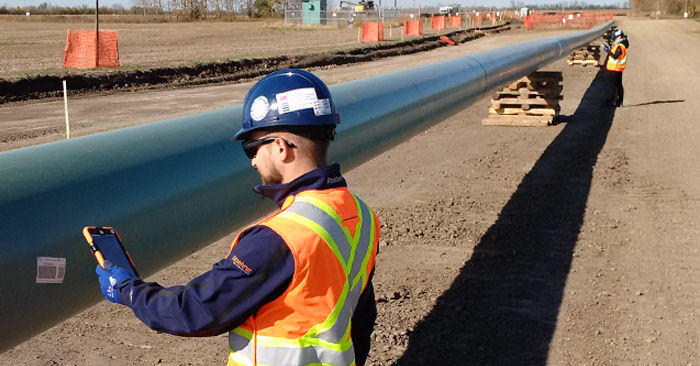Pipeline Inspector Jobs – An Overview

Pipeline Inspector
In the simplest terms, pipeline inspector jobs involve inspecting and maintaining pipelines and checking that things work as per specs.
However, an inspection can take different forms, so numerous methods and techniques will be used.
No single approach is correct, as it all depends on the situation.
Primary Responsibilities
The role of an inspector is to check the construction and maintenance of a company’s pipeline project.
The inspection will depend on the company’s technical guidelines, which is why the method used varies.
Besides performing a checkup, an inspector must also ensure that safety standards and procedures are followed and that a safety culture is promoted throughout.
Some inspectors need to ensure that the pipeline company adheres to proper environmental practices and is ecologically friendly.
At the same time, they may also be held responsible for controlling costs and are also expected to make decisions to complete work.
In addition, they have to be sure pipes have no release, spills, or leaks.
Requirements of the Job
Almost all companies will hire only those with working experience and know pipeline rehabilitation, strength calculation, pipe defect evaluation, and many others. They must have experience in repairing different kinds of pipes.
Anyone who wishes to work as a pipeline inspector also needs to be conversant with computer software like Word, Excel, Outlook, and PowerPoint.
They will be used to prepare reports and create charts and presentations.
Because inspecting is a taxing job, the job applicant must be willing to work during weekends, holidays, late evenings, and odd hours.
Other Possible Prerequisites
In many cases, an inspector needs to have working experience, and they must also have certifications, although the type of certification will depend on the state.
Particular kinds of certificates may also be needed depending on their duties.
Usually, a pipeline company will require an applicant to have experience in inspecting liquid petroleum pipelines and pipeline fabrication.
A pipeline inspector also needs to know OSHA restricted space prerequisites and benzene monitoring equipment, and gas air monitoring knowledge.
In addition, some inspectors may be required to handle, carry, lift and position different types of equipment.
Other Considerations
A pipeline inspector can make good money, but the working conditions can be challenging to say the least.
Usually, your work occurs in hot, humid conditions, and you will need to travel to different locations.
If you apply as a field inspector, you will support pipeline construction activities and coordinate with different agencies and personnel like construction contractors, utilities, and clients.
The majority of pipeline field inspectors also need to inspect the pipes, look for signs of sedimentation and erosion, and prepare quantity computations daily, which will be presented to the project manager.
While visual inspection is part of the job, they also need to go over and assess the conditions of supplies and equipment.
It is also part of an inspector’s job to reject work if it is not up to the required safety standards or some of the components are defective or not working.
They will also be required to make changes to drawings and designs if necessary.
Bio: Conrad Travis does a pipeline inspector job and has worked in the industry for more than 13 years. He has written numerous articles concerning the work of a pipeline inspector and other topics about the industry. Travis lives in Portland, Oregon.
Category: Career





The man in the picture would be escorted off of any pipeline construction project. He has no safety gear on. Maybe the white socks with the sandals are noticeable. Use a stock photo of a safe project, not a snapshot of a tourist in Alaska.